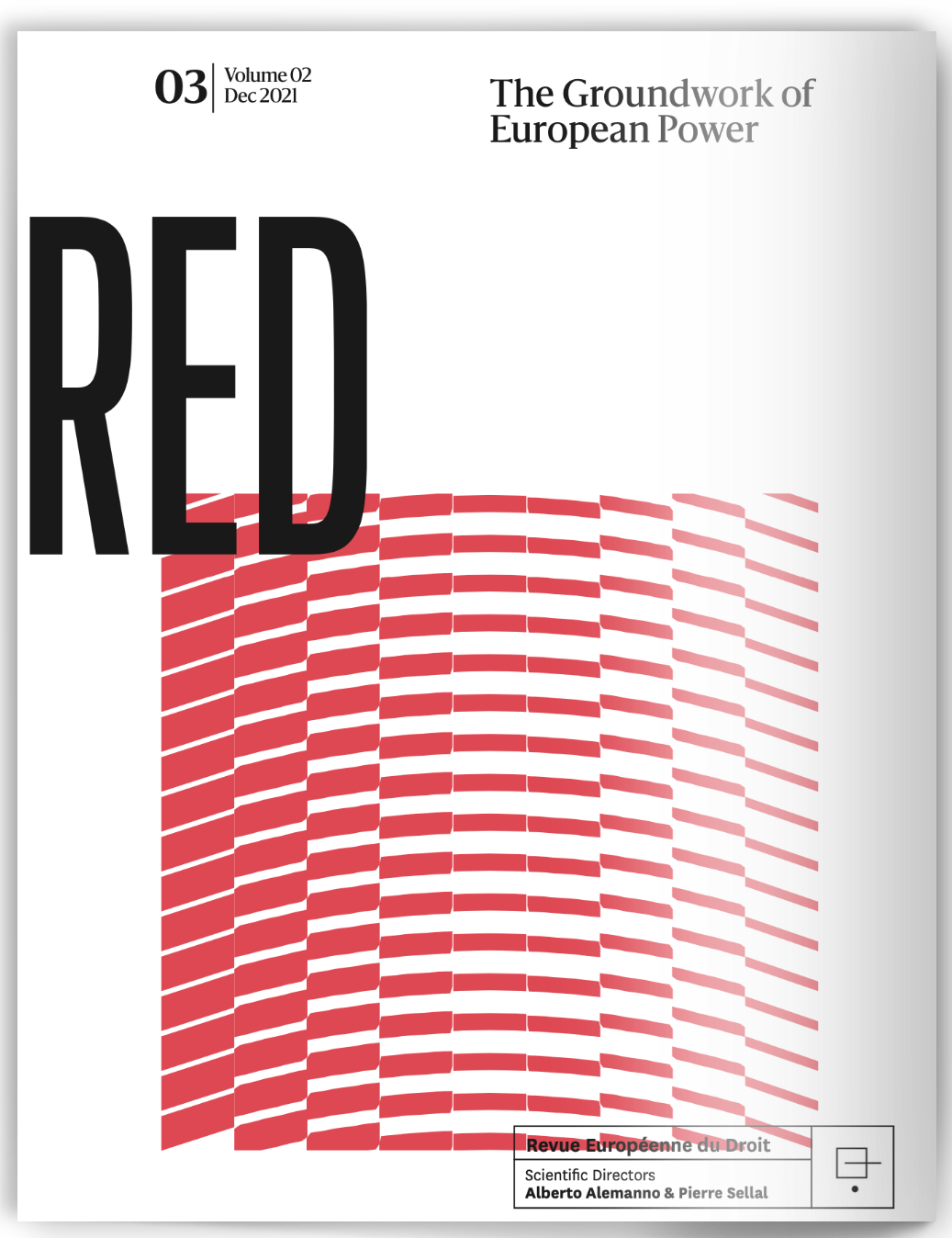Europe – An Eminently Legal Power
Issue
Issue #3Auteurs
Joachim-Nicolas Herrera , Hugo Pascal , Vasile Rotaru
La Revue européenne du droit, December 2021, n°3
The groundwork of European power
What does Europe stand for? The answer is far from straightforward, particularly in the face of increasing internal tensions concerning issues ranging from the migration crisis to the primacy of European law and to the undermining of the rule of law. The conviction defended by this issue of the RED is that any reflection on the idea of European power, no longer reducible to a French vision of European destiny, is intimately linked to the question of European identity. The contributions collected here demonstrate that European identity is inseparable from the legal culture which has bestowed on Europe its institutions and its means of action. Europe as a power, both internally and externally, is above all a normative power.
Take the internal aspects first. The EU’s founding fathers wisely chose to integrate Europe through the internal market, which is a primarily legal construct: without the guarantee of freedom of movement, regulation to ensure fair competition, and harmonization of certain commercial rules, there would be no common market. But the Union is not only a market: the European project proves that free trade can be reconciled with a commitment to social protection. It is also through the law that sovereign political actions can be taken at the Union level, be it to tackle the climate emergency, the common responses to financial crises, or the regulation of the digital economy. As the Union’s scope of sovereign power increases, the question of the legitimacy of European governance arises with a renewed urgency. Of course, this is not the time to revise the treaties again, although there are multiple voices in favor of shifting to majoritarian decision-making rules. However, the way that power is exercised in Europe continues to subtly evolve: on the one hand, it is shaped by actions dictated by necessity in times of crisis (which best reveal where true decision-making power lies: think of the new role of the ECB); on the other hand, it is influenced by participatory democracy efforts (such as the recent Conference on the Future of Europe) which portend a new popular impetus. The circumspect rulings of the Karlsruhe Court illustrate this permanent negotiation of the forms of governance, which can only be conducted in a legal language.
Regarding the rest of the world, European power depends even more on its legal embodiment. The purpose is to endow the Union with the means of strategic autonomy and permitting it to pursue its own interests (assuming that they can be clearly defined). In the absence of military objectives, Europe has mostly economic interests directed to the defense of a certain political and social model. One of the ways to actualize this power is through the now familiar “Brussels effect”: access to the European market has been since its inception subject to the requirement to respect strict standards; where it is warranted by internal cost management, companies tend to align even their global production of goods and services with these higher standards. However, the relative size of the common market is declining; in any case, on the most important global issues, Europe is no longer the only one to set the trend: consultation amongst regulators is no longer always possible and alternative models are emerging. In this new state of the world, Europe can only retain its normative power if its governance model wins the support of minds and hearts abroad.
The two embodiments of European power are therefore intimately linked: Europe’s external discourse will struggle to persuade if Europe does not manage to be impeccable itself. It is for this reason that the identity crisis that Europe faces is so decisive: if sovereignty is to find a European expression, it is above all necessary that a consensus on what unites the people of Europe is established. Yet, the challenges to the principles of the rule of law, particularly in Poland and Hungary, are forcing us to take a step back. Certainly, the most valuable asset of European legal culture, which has structured its societies for millennia, is the ability to ensure the concordance of discordant canons—this is the very principle of European construction through the law. But what does it mean when the very conditions of possibility of this plurality in unity are undermined: are these contextual difficulties, or should we rather understand that the hypothesis of a family resemblance between political and constitutional cultures, beyond national peculiarities, has become simply unsustainable?
If we accept that the identity capable of founding the expression of a powerful Europe, both internally and externally, can only be legal, reestablishing (or creating) this coherence becomes a primordial, even existential, question for the Union. The contributors to this issue of the Revue Européenne du Droit attempt to determine the possible ways forward.
citer l'article
Joachim-Nicolas Herrera, Hugo Pascal, Vasile Rotaru, Europe – An Eminently Legal Power, Dec 2021,
à lire dans cette issue
voir toute la revue





